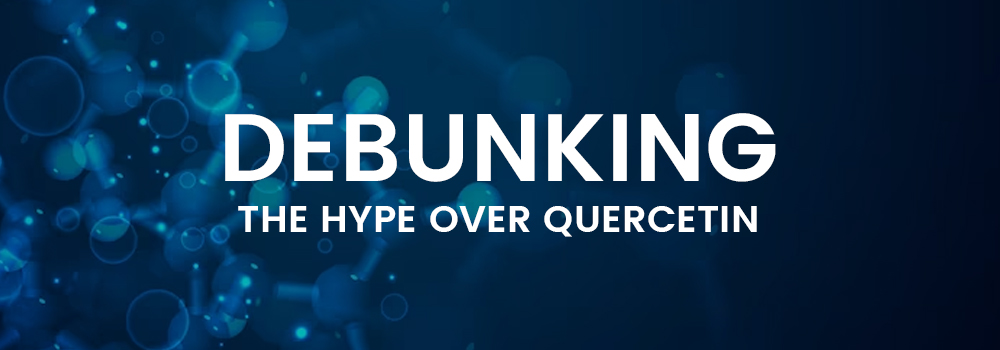Quercetin is a flavonoid, which is a type of plant pigment that has antioxidant properties. It is commonly found in fruits and vegetables such as apples, berries, onions, and kale. In recent years, quercetin has gained popularity as a dietary supplement, often marketed as a natural remedy for a variety of health conditions, including allergies, inflammation, and viral infections.
However, there is little evidence to support the use of quercetin as a supplement. Here are some reasons why:
- Limited bioavailability: Quercetin has poor bioavailability, meaning that it is not easily absorbed by the body with some studies suggesting that only about 1% of what is taken orally reaches the bloodstream. This limits its effectiveness as a supplement.
- Inconsistent results in studies: While some studies have suggested that quercetin may have anti-inflammatory and antiviral effects, the results have been inconsistent. Some studies have shown no significant effects of quercetin supplementation.
- Lack of standardized dosing: There is no standard dosing recommendation for quercetin, and the optimal dosage for various health conditions is not clear. This makes it difficult to compare results across studies and to know whether the supplement is being used effectively.
- Possible side effects: While quercetin is generally considered safe, as with all foreign compounds it can cause side effects such as headache, nausea, and tingling sensations in some people. It can also interact with certain medications, including blood thinners and antibiotics.
- Limited long-term safety data: There is limited information on the long-term safety of quercetin supplementation, particularly at high doses. This raises concerns about the potential for unknown side effects or interactions with other medications.
Overall, the evidence for the use of quercetin as a supplement is weak, and it is not recommended as a standalone treatment for any health condition.
These issues are not unique to quercetin. In fact, many plant/herbal extracts such as flavonoids and polyphenols (e.g. resveratrol) are only useful for the plants that make them, not humans. This is because these compounds often serve as plant pigments, helping to attract pollinators or protect the plant from UV radiation, insects, and other environmental stressors. While some flavonoids and polyphenols may have health benefits for humans, these benefits are often limited by poor absorption, lack of standardization, and inconsistent results.
It is also worth noting that plants have a variety of flavonoids and polyphenols that work in conjunction to achieve the best outcome. Extracting just one of these, such as quercetin, is not an effective strategy for translating any perceived health benefits. Think of vitamins in humans, for example. We need a diverse range of vitamins, and we can't choose one over the other. They are all required for our health and well-being. So, if we were to derive a possible benefit from plants, we would have to use the whole plant rather than just one specific extract.
Why Glyteine is a better choice
Stating the obvious, plants and humans are very different. We have evolved to use plants as nourishment to provide us with nutrients, fibre and energy that are unique to us. Therefore, assuming that we can benefit from plant compounds that are not part of our physiology is fanciful.
A better approach to achieving the best possible health outcomes for us is to utilize the mechanisms evolution has provided us with. In humans, glutathione is known as the Master Antioxidant, and we know with certainty that it is very effective at what it does. It is not only a potent antioxidant but a vital component of our immune system and responsible for building and repairing tissue.
Despite its importance, we also know that glutathione can easily fall below optimum levels. The natural aging process, stress, exercise, and toxins can all negatively affect glutathione. Unfortunately, we cannot take glutathione as a supplement because it is not taken up by cells. The answer is a supplement that boosts our natural glutathione production inside our cells.
Glyteine is the natural precursor to cellular glutathione production and, unlike glutathione itself, is readily taken up by cells, where it is immediately converted to glutathione. It is the only effective and clinically proven way to enhance glutathione, which is so vital for our health and well-being.






